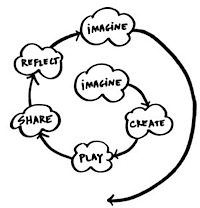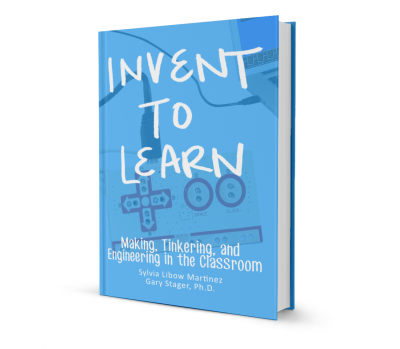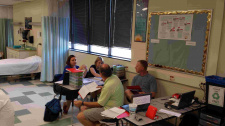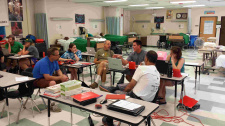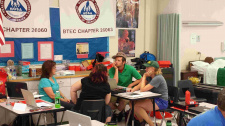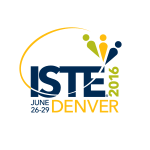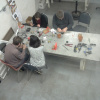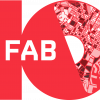Almost two years ago, I took a class at SparkFun called “Microcontrollers for Educators.” The class was a rapid-fire, drinking from the fire hose deluge of information around microcontrollers, programming, and the maker philosophy. It was the first year SparkFun had run a class like this - specifically for educators. It completely opened up my view toward using microcontrollers and integrating opportunities for teaching computational thinking into the classroom.
In February, I left the classroom to join the SparkFun education team. One of the things I was tasked with was to re-vamp the materials we are using to help support teachers and integrate more material around execution, delivery, and pacing. About the same time that I started at SparkFun, we were approached by Professor Michael de Miranda at Colorado State University to support his work in engineering education with the GK-12 program. He asked if we would put on a professional development workshop for teachers. This was our opportunity to enhance the materials we have done in the “Microcontrollers for Educators” class and grow it.
Working with the Adams 12 school district and Bollman Tech, we ran a teacher professional development around making, building, and engineering using microcontrollers. We had 13 teachers (not including the nursing mannequins in the back of the classroom) and one very talented high school senior from Monarch HS join us for the three day short course. We had one of the most diverse group of teachers from elementary through high school and subject areas from mathematics, computer science, technology, and automotive.
Our primary goals of the workshop were for teachers to: * Learn to use tools for enhancing creativity, engineering, and inventing in the classroom. * Utilize resources available to support further learning. * Develop a mini-unit plan for integrating the use of microcontrollers in your own class.
We tied into the class the engineering \ tinkering \ kindergarten design cycle from Mitch Resnick’s Lifelong Kindergarten Lab at MIT - to imagine, Create, Play, Share, and Reflect.
In addition to leveraging the philosophy of the Lifelong Kindergarten Lab, we weaved in a lot of material from Sylvia Martinez and Gary Stager’s new book, Invent to Learn. A big part of developing strong project-based classes requires that teachers adopt, as Seymour Papert coined, a constructionist ideology of “Less us, more them” in the class.
During the three days, teachers engaged in various levels of using arduino and microcontrollers. The main topics covered in our program were: * Interfacing the PicoBoard with Scratch.
Introduction to programming with Processing.
Data logging and collection using Arduino.
Introduction to robotics and motor control with the Magician's Chassis. - Unfortunately, the RedBot had not yet been released.
In addition to all of these technical concepts, we gave teachers time to discuss ideas of incorporating this into their classes. Teachers talked about what they'd walk away from this experience with and how they'd use these in their classes.
Our experience in this three day course is a great model for professional development using microcontrollers in education. We look forward to the ideas, products, and inventions that come from students in these teachers' classes!
With three days, we still felt pressed for time. Our hope is to expand this to a full week teacher-camp for next summer. Please keep an eye out for future postings about this. In the meantime, check out some of the materials that we have developed to help support our teachers.

